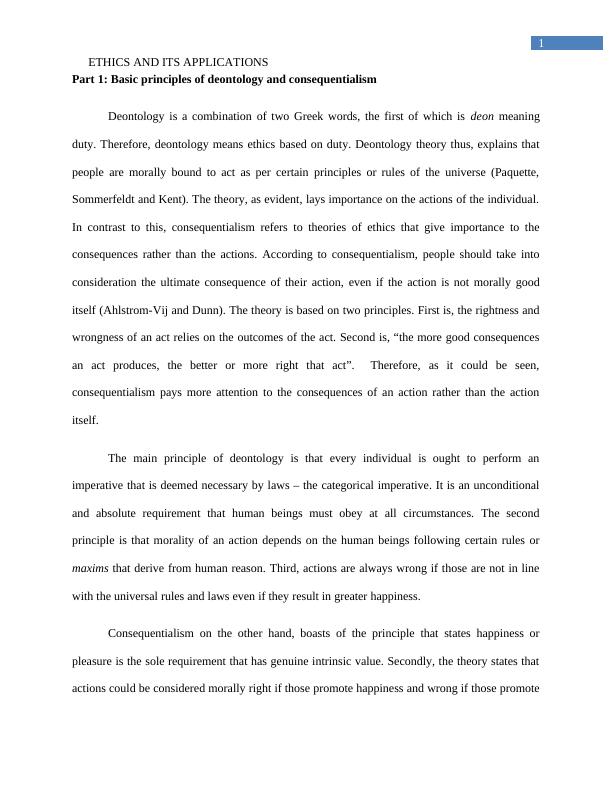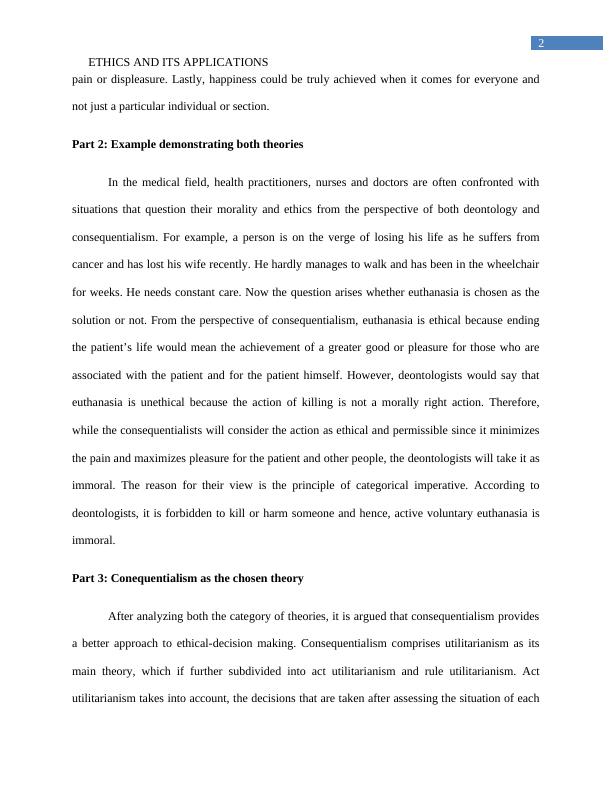Ethics and Its Applications
Compare consequentialism and deontology, apply utilitarianism and Kantian ethics to an ethical question, and argue for a better approach to ethical decision-making.
6 Pages1345 Words416 Views
Added on 2022-11-29
About This Document
This document discusses the basic principles of deontology and consequentialism and their application in the medical field. It explores the ethical dilemma of euthanasia and presents arguments from both the deontological and consequentialist perspectives. The document concludes by analyzing why consequentialism is considered a better approach to ethical decision-making.
Ethics and Its Applications
Compare consequentialism and deontology, apply utilitarianism and Kantian ethics to an ethical question, and argue for a better approach to ethical decision-making.
Added on 2022-11-29
ShareRelated Documents
End of preview
Want to access all the pages? Upload your documents or become a member.
IT Ethical Issues
|7
|1706
|198
Philosophy: Ethical Theories and the Mind-Body Problem
|11
|3228
|38
Essay- Accounting as a Profession
|9
|1940
|333
Utilitarianism and Deontological Theory
|10
|2416
|487
The ethical issue of Arthur and Nancy Johnson
|8
|2949
|401
Non-Consequential Ethical Analysis
|5
|1069
|24



